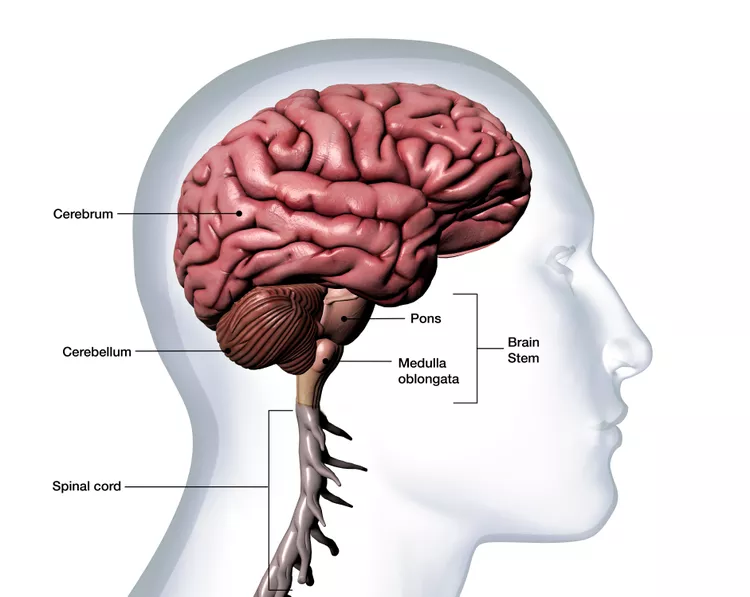Emotional well-being is not just the absence of mental illness—it is the presence of balance, resilience, and inner peace in our daily lives. In today’s fast-paced world, with endless distractions, pressures, and uncertainties, it is easy to feel overwhelmed, anxious, or disconnected. But the good news is that emotional well-being is something we can actively nurture.
Modern science—from psychology and neuroscience to behavioral medicine—has uncovered countless strategies that help us manage stress, improve mood, and strengthen mental resilience. These tips are not vague self-help slogans; they are grounded in research, tested through experiments, and proven to benefit the human mind and body.
Here are 20 science-based strategies to help you cultivate better emotional well-being and create a more balanced, fulfilling life.
1. Practice Gratitude Daily
Gratitude is one of the simplest yet most powerful tools for emotional health. Studies in positive psychology show that keeping a gratitude journal—writing down three things you’re thankful for each day—can significantly boost happiness, reduce stress, and even improve sleep.
When we focus on what we have instead of what we lack, our brains rewire themselves to notice positive experiences more often. Gratitude shifts attention away from worry and dissatisfaction, creating a mindset of abundance and peace.
2. Move Your Body Regularly
Exercise is not only for physical health; it is one of the strongest natural antidepressants. Physical activity stimulates the release of endorphins (the brain’s “feel-good” chemicals) and regulates stress hormones like cortisol.
Research has shown that just 30 minutes of moderate exercise, such as walking, dancing, or cycling, can reduce symptoms of anxiety and depression. Movement also improves sleep, self-esteem, and overall cognitive function. The key is consistency—find a form of activity you enjoy, and make it a habit.
3. Prioritize Quality Sleep
Sleep is the foundation of emotional well-being. When we are sleep-deprived, the brain’s emotional centers—particularly the amygdala—become hyperactive, leading to heightened stress and mood swings. Meanwhile, the prefrontal cortex, responsible for rational thinking, weakens, making us more emotionally reactive.
Studies show that adults who consistently sleep 7–9 hours per night have better emotional regulation, improved resilience, and lower risk of anxiety and depression. Creating a bedtime routine, limiting screen time, and keeping a consistent sleep schedule are essential for restoring emotional balance.
4. Practice Mindfulness Meditation
Mindfulness is the practice of being fully present in the moment, without judgment. Neuroscientific studies show that mindfulness meditation strengthens the prefrontal cortex, reduces activity in the brain’s stress centers, and increases gray matter in regions associated with empathy and emotional regulation.
Even 10 minutes of mindfulness practice daily can reduce anxiety, improve focus, and enhance emotional resilience. You don’t need to sit cross-legged for hours—mindfulness can be practiced while eating, walking, or simply breathing consciously.
5. Strengthen Social Connections
Humans are wired for connection. Social relationships are a critical factor in emotional well-being and even longevity. A long-term Harvard study found that strong social ties are the single greatest predictor of happiness and life satisfaction.
Meaningful connections provide emotional support, reduce loneliness, and buffer against stress. Whether it’s calling a friend, joining a community group, or spending time with loved ones, nurturing relationships is a vital act of self-care.
6. Limit Screen Time and Digital Overload
While technology connects us, excessive screen time—especially on social media—has been linked to increased anxiety, loneliness, and reduced self-esteem. Constant comparison with curated online lives can distort our sense of reality and worth.
Studies suggest that limiting recreational screen time to less than two hours a day significantly improves mental health. Taking digital detox breaks, turning off notifications, and setting screen-free zones in your day can help restore balance.
7. Engage in Acts of Kindness
Kindness is powerful medicine—for both the giver and the receiver. Research shows that performing small acts of kindness, such as volunteering, helping a neighbor, or even smiling at a stranger, boosts happiness and reduces stress.
Altruism activates brain regions linked to reward and connection, releasing oxytocin—the “bonding hormone.” This not only improves mood but also strengthens social trust and resilience. Kindness is contagious; when we give, we also receive.
8. Spend Time in Nature
Nature has a profound healing effect on the mind. Studies show that spending just 20 minutes outdoors reduces stress hormones, lowers blood pressure, and improves mood. Exposure to natural settings restores attention, enhances creativity, and fosters feelings of awe and connectedness.
Even small doses of nature—like a walk in the park, sitting by a window with plants, or listening to natural sounds—can significantly improve emotional well-being. In a world filled with concrete and screens, reconnecting with nature is essential for balance.
9. Eat for Mental Health
What we eat directly affects how we feel. Diets rich in whole foods—fruits, vegetables, whole grains, lean proteins, and omega-3 fatty acids—are linked to lower rates of depression and anxiety. Conversely, diets high in processed foods, sugar, and unhealthy fats are associated with poorer mood and cognitive decline.
The gut-brain connection plays a vital role: gut bacteria produce neurotransmitters like serotonin that influence mood. Probiotic-rich foods such as yogurt, kefir, and fermented vegetables can help support a healthier gut and a healthier mind.
10. Learn to Breathe Properly
Breathing is the bridge between the body and mind. Stress and anxiety often cause shallow breathing, which reinforces the body’s stress response. Science shows that slow, deep breathing activates the parasympathetic nervous system, calming the body and reducing stress.
Practices such as diaphragmatic breathing, box breathing, or alternate nostril breathing are simple yet powerful ways to regulate emotions and restore calm in moments of tension.
11. Practice Self-Compassion
Many of us are our own harshest critics. But research from psychologist Kristin Neff shows that self-compassion—treating ourselves with kindness instead of judgment—significantly reduces anxiety, depression, and stress.
Self-compassion is not about ignoring mistakes but about responding to them as we would to a friend: with understanding, patience, and encouragement. This approach fosters resilience and emotional growth, instead of self-doubt and guilt.
12. Journal Your Thoughts and Feelings
Writing is a scientifically proven way to process emotions. Expressive writing—putting feelings into words—has been shown to reduce stress, improve mood, and even strengthen the immune system.
Journaling provides clarity, helping us untangle complex emotions and see patterns in our thoughts. Whether it’s gratitude journaling, stream-of-consciousness writing, or goal setting, journaling is a safe space to release emotions and create perspective.
13. Listen to Music
Music is one of the most universal and accessible tools for emotional well-being. Neuroscience shows that music stimulates the brain’s reward system, reduces stress hormones, and can even synchronize heart rate and breathing to calming rhythms.
Upbeat music can lift mood and energy, while slow, soothing melodies can reduce anxiety and promote relaxation. Singing or playing an instrument further amplifies these benefits, creating both joy and connection.
14. Laugh Often
Laughter truly is medicine. It triggers the release of endorphins, reduces stress, boosts immunity, and fosters social bonding. Studies even suggest that laughter therapy can improve mood in patients with depression and anxiety.
Making time for humor—whether through comedy, playful conversations, or funny videos—lightens emotional weight and strengthens resilience. Laughter reminds us not to take life too seriously.
15. Set Boundaries and Learn to Say No
Boundaries are essential for protecting emotional energy. Overcommitting leads to stress, burnout, and resentment. Research in psychology shows that people who set healthy boundaries have higher self-esteem, better relationships, and lower stress.
Learning to say no is not selfish—it is an act of self-care. Boundaries allow us to focus on what truly matters and maintain balance in our emotional lives.
16. Develop a Growth Mindset
A growth mindset, a concept developed by psychologist Carol Dweck, is the belief that abilities and intelligence can be developed through effort and learning. People with growth mindsets handle challenges better, recover from setbacks faster, and experience higher emotional well-being.
Instead of seeing failure as defeat, they see it as an opportunity to grow. Adopting this perspective not only reduces fear of failure but also fosters resilience and confidence.
17. Limit Alcohol and Substance Use
While alcohol or substances may provide temporary relief from stress, science shows they often worsen anxiety and depression over time. Alcohol disrupts sleep, alters brain chemistry, and can become a harmful coping mechanism.
Cutting back on alcohol or avoiding substances helps maintain stable mood, clearer thinking, and healthier emotional balance. Instead, healthier coping strategies—such as exercise, meditation, or social support—are more sustainable.
18. Create Meaning and Purpose
Humans thrive when life feels meaningful. Research shows that having a sense of purpose—whether through work, relationships, creativity, or spirituality—significantly enhances emotional well-being. Purpose gives us direction, motivation, and resilience during difficult times.
Purpose doesn’t have to be grand; it can be found in everyday acts of care, creativity, or contribution. What matters is that it aligns with your values and gives life a sense of significance.
19. Seek Professional Help When Needed
There is no shame in seeking help. Therapy and counseling are evidence-based tools that improve mental health and emotional resilience. Cognitive-behavioral therapy (CBT), for example, is highly effective in treating anxiety and depression by reshaping unhelpful thought patterns.
Mental health professionals provide tools, strategies, and support that can make all the difference. Reaching out is a sign of strength, not weakness.
20. Practice Acceptance and Letting Go
Finally, one of the most liberating practices for emotional well-being is acceptance. Life is full of uncertainty, change, and things beyond our control. Fighting against reality often deepens suffering.
Acceptance, as practiced in mindfulness and acceptance-based therapies, does not mean giving up—it means letting go of resistance. By embracing uncertainty and releasing what we cannot control, we free ourselves to focus on what we can influence: our actions, attitudes, and choices.
Conclusion
Emotional well-being is not a fixed destination; it is a daily practice. These 20 science-based tips—ranging from gratitude and mindfulness to social connection and purpose—offer a roadmap to building resilience, balance, and joy.
The beauty of these practices is that they work together. Exercise enhances sleep. Gratitude strengthens relationships. Kindness boosts both mood and meaning. Slowly and steadily, these habits create a foundation of emotional strength that allows us to weather life’s storms and embrace its beauty.
In a world filled with challenges, investing in your emotional well-being is not just an act of self-care—it is an act of empowerment, one that benefits not only you but everyone around you.






